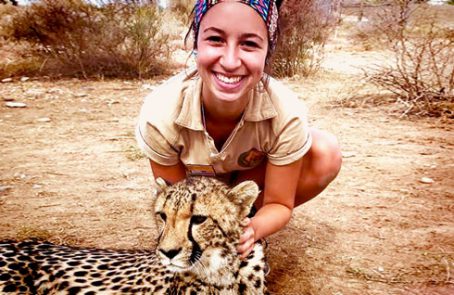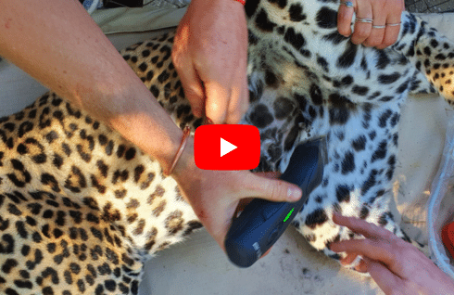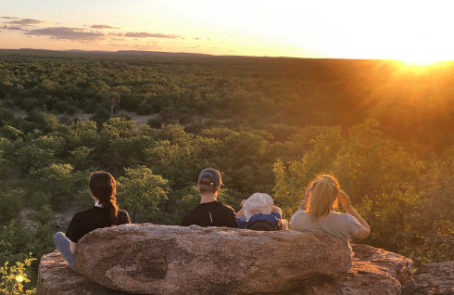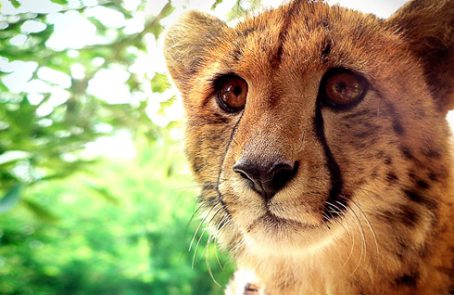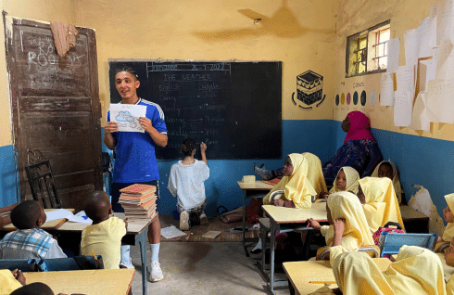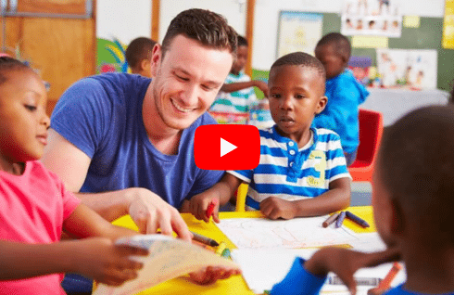(Visit our South Africa page for the best wildlife volunteering programs Africa has to offer.) Africa is a continent undergoing huge change. Countries across Africa are making strides in development. It’s an exciting time to volunteer in humanitarian and environmental causes, in some of the most exciting travel destinations in the world. As a volunteer, you could participate in programs that bring about lasting change, plus learn more about life in Africa and act as a cultural ambassador when you return home.
Although Africa is often thought of as one massive country, each individual country is perfectly distinct. Culture, landscapes, traditions, languages – with each border you cross, you’ll find your surroundings totally different. There is more to Africa than most people know. There might be challenges, but there is a lot of light as well. You’re likely to come across some of the most inspiring people you’ll ever meet in Africa. When you return home, you’ll remember the smiles rather than the hardships people face. Getting to know Africans through a volunteer program will give you a better understanding of international development and help you see beyond familiar stereotypes.
Volunteers can play an important role in contributing to. Volunteer in Africa to discover a continent of diverse cultures, spectacular wildlife, and unforgettable people.
Volunteer Programs in Africa
Based on years of practice and in-depth field reports from hundreds of volunteers in Africa, GoEco has put together a carefully vetted selection of excellent humanitarian, development, education and wildlife volunteer projects.
Rehabilitate lions in Zimbabwe or teach in South Africa – no matter the project you choose, this is your chance to make a difference. Here are some of the causes you can get involved with.
Wildlife and Animal Conservation
Why go on a safari when you can work directly with Africa’s animals? Volunteering in wildlife conservation in Africa will give you the chance to learn more about some of the most magnificent beasts on the planet. You’ll gain a deeper understanding of the issues facing them as you see the challenges presented in a real-world context.
Marine and Coral Reef Conservation
Oceans are extremely vulnerable to the changing climate, pollution, and human activities. Volunteering in marine conservation projects in Africa is a chance to make a real and much needed impact. At the same time, you’ll learn skills such as diving or data collection. As well as presenting exciting marine volunteer opportunities, Africa’s Indian Ocean coastline is home to some of the most beautiful beaches in the world.
Medical and Healthcare
Aspiring healthcare professionals will benefit from volunteering in medical centers and clinics in Africa. There are ample opportunities for hands-on experience. In many parts of Africa, access to healthcare services is limited. If you have skills in this field, this is a chance to make a tangible difference in places where vital resources are scarce.
Community Aid and Development
Volunteering in community development in Africa is a rewarding option. Teaching children or facilitating sports programs is a unique opportunity to become immersed in local life. Working with either children is excellent for developing soft skills and learning responsibility. Plus, getting involved in community-based projects is one of the best ways to see international development at a human level.
Locations
One of the best things about volunteer programs in Africa is the many locations you can choose from. You could be based by a beach, in the jungle, high on a mountain or on an open plain. Although African countries are often lumped together, each one has a distinct personality.
South Africa
Volunteer projects in South Africa often include working with animals you won’t find in other African countries, such as great white sharks or penguins. The vibrant Cape Town coastline is also a great place to combine volunteering with learning to surf.
Zimbabwe
Work on lion conservation near Victoria Falls, or help with medical care and education in Antelope Park – Zimbabwe has a diverse range of volunteering options available.
Tanzania
Home to Kilimanjaro, the Serengeti, and Zanzibar, Tanzania is a study in sweeping vast landscapes. Some of the best safari parks in Africa are found here. You’ll also find exciting volunteer programs, such as empowering girls in Moshi or conserving dolphins in Zanzibar.
Zambia
Some of the most rewarding volunteer projects in Zambia include community teaching, medical care and sports programs. These opportunities let you get to the heart of the community, gaining a deeper understanding of local culture as well as lifelong friends.
Kenya
With a diverse tapestry of tribal cultures and landscapes ranging from pristine beaches to the lush jungles in Hell’s Gate, Kenya is one of the most colorful countries in Africa. Helping to protect lions in the Masai Mara is an unforgettable experience.
Mozambique
The Indian Ocean coastline is the biggest drawcard in Mozambique. Study majestic whale sharks as you learn to dive off the palm-fringed beaches.
Malawi
The ‘warm heart of Africa’ might be one of the poorest countries in Africa but it is abundant in charm and warmth. Volunteer projects in Malawi are spectacular for both the natural setting and the kindness of the people you work with.
Madagascar
An Indian Ocean island miles off the coast of Africa, Madagascar is its own entity. The culture here is unlike anywhere else. Make your childhood dreams come true as you get to know and protect cheerful lemurs.
Seychelles
These islands might be a honeymoon destination, but they’re not all perfection. The marine ecosystems surrounding Seychelles are vulnerable and there is a demand for research and conservation assistance.
Whether as part of a gap year, a spring break, or as part of your studies, taking part in one of these programs is a meaningful experience that will help to shape individuals both personally and professionally. Take a look at the African volunteer programs we offer or get in touch with us to find out more.
How to Choose the Right Volunteer Program in Africa
Choosing the right volunteer program in Africa is crucial for a fulfilling and impactful experience. It requires careful consideration of your abilities, interests, and the needs of the communities you wish to serve.
Assessing Your Skills and Interests
Before selecting a program, take time to reflect on what you can offer and what you hope to achieve through volunteering. Consider your professional skills, hobbies, and passions. For instance, if you have a background in education, you might contribute significantly to teaching programs. If you’re passionate about wildlife, conservation projects could be a perfect fit.
Questions to ask yourself:
- What are my strongest skills and how can they be applied?
- What causes am I most passionate about?
- Do I prefer working with people, animals, or in environmental settings?
- What cultural experiences am I seeking?
By aligning your skills and interests with the needs of a volunteer program, you’re more likely to make a meaningful contribution and have a rewarding experience.
Researching Reputable Organizations
Not all volunteer programs are created equal. It’s essential to research organizations thoroughly to ensure they are reputable and have a positive impact on local communities.
Steps to identify trustworthy volunteer programs:
- Check Credentials: Look for organizations registered with official bodies or those that have partnerships with recognized NGOs or government agencies.
- Read Reviews and Testimonials: Seek out feedback from former volunteers to gauge the organization’s effectiveness and ethical standards. Look for reviews on third-party platforms like TrustPilot or similar review providers to ensure the feedback is unbiased and authentic.
- Consult Reliable Sources: Use resources like the U.S. Department of State or UK Government’s Foreign Travel Advice for information on organizations operating abroad.
Understanding Commitments and Expectations
Volunteering abroad involves various commitments that extend beyond the duration of your stay.
Consider the following factors:
- Time Commitment: Programs can range from a couple of weeks to a year or more. Ensure the program length fits your availability.
- Financial Obligations: Understand all costs involved, including program fees, travel expenses, accommodation, and daily living costs.
- Role Responsibilities: Clarify what tasks you’ll be expected to perform. Request a detailed role description to ensure it matches your skills.
- Cultural Adaptation: Be prepared to adapt to new environments, which may include language barriers and different living conditions.
By fully understanding these aspects, you can prepare adequately and set realistic expectations for your volunteer experience.
Evaluating the Impact on Local Communities
It’s important to choose programs that prioritize sustainable, positive impacts on the communities they serve.
Ways to assess community impact:
- Community Involvement: Effective programs work in partnership with local communities and leaders.
- Sustainability: Look for initiatives that focus on long-term benefits rather than short-term fixes.
- Capacity Building: Programs should aim to empower local people by transferring skills and knowledge.
- Ethical Practices: Ensure the organization adheres to ethical guidelines, especially when working with vulnerable populations.
You can refer to resources like the United Nations Volunteers programme for standards on ethical volunteering.
Volunteering with Wildlife Conservation in Africa
Africa’s rich biodiversity offers unique opportunities for volunteers interested in wildlife conservation. Contributing to these efforts can help protect endangered species and preserve vital ecosystems.
Working at African Animal Rehabilitation Centers
Animal rehabilitation centers care for injured, orphaned, or rescued wildlife with the goal of releasing them back into the wild.
Volunteer roles often involve:
- Animal Care: Feeding, cleaning enclosures, and providing enrichment activities.
- Medical Assistance: Supporting veterinary staff in treating animals.
- Maintenance Work: Assisting with facility upkeep and improvements.
These centers rely on volunteers to support their operations and enhance the well-being of the animals in their care.
Protecting Endangered Species
Many African species face threats from poaching, habitat loss, and climate change.
How you can help:
- Anti-Poaching Initiatives: Assist in monitoring wildlife to deter illegal hunting.
- Research Projects: Participate in data collection to support conservation strategies.
- Public Awareness Campaigns: Educate communities about the importance of wildlife protection.
Organizations like the World Wildlife Fund offer programs focused on endangered species conservation.
Participating in Habitat Restoration
Restoring natural habitats is crucial for the survival of wildlife.
Activities may include:
- Reforestation Projects: Planting trees to rebuild forests.
- Invasive Species Removal: Eliminating non-native plants that disrupt ecosystems.
- Soil Conservation: Implementing techniques to prevent erosion and land degradation.
By engaging in these efforts, volunteers help create sustainable environments for wildlife to thrive.
Understanding Ethical Wildlife Practices
Responsible wildlife volunteering prioritizes the welfare of animals and ecosystems.
Key ethical considerations:
- No Direct Interaction with Wild Animals: Avoid programs that allow unnecessary handling of wildlife.
- Conservation over Tourism: Ensure the focus is on genuine conservation efforts, not entertainment.
- Qualified Supervision: Work under the guidance of experienced conservationists and scientists.
Refer to the guidelines provided by the International Union for Conservation of Nature for ethical practices in wildlife conservation.
Immersing Yourself in African Cultures
Volunteering in Africa offers a unique opportunity to immerse yourself in diverse cultures, enriching your experience and fostering mutual understanding.
Understanding Local Customs and Traditions
Africa is home to thousands of ethnic groups, each with its own customs.
Ways to deepen your cultural understanding:
- Cultural Orientation Programs: Participate in sessions provided by your host organization.
- Respect Religious Practices: Be mindful of religious beliefs and participate respectfully when appropriate.
- Observe Social Norms: Learn about local etiquette regarding greetings, dress codes, and gestures.
- Do Your Own Research: Watch YouTube videos and documentaries about the local culture to gain insights before you travel.
Understanding these customs enhances your ability to connect with community members meaningfully.
Learning Indigenous Languages
Communicating in the local language can greatly enhance your integration.
Benefits of learning the language:
- Building Rapport: Even basic phrases can show respect and willingness to engage.
- Effective Communication: Facilitates better collaboration with locals.
- Cultural Insight: Language learning often provides deeper insights into cultural nuances.
Resources like Duolingo or local language schools can aid in your learning process.
Participating in Community Life
Active participation helps you experience daily life from a local perspective.
Engagement opportunities:
- Attend Local Events: Participate in festivals, ceremonies, and community gatherings.
- Visit Markets and Public Spaces: Interact with artisans, vendors, and community members.
- Volunteer in Community Projects: Beyond your primary role, assist in local initiatives.
These interactions can lead to meaningful relationships and a deeper appreciation of the community’s way of life.
Respectful Interaction and Cultural Sensitivity
Approach all interactions with openness and respect.
Guidelines for cultural sensitivity:
- Listen Actively: Show genuine interest in learning from others.
- Avoid Assumptions: Be open-minded and refrain from imposing your own cultural norms.
- Seek Permission: Always ask before taking photographs or participating in cultural practices.
- Reflect on Feedback: Be willing to adjust your behavior based on local input.
The Peace Corps offers valuable resources on cultural sensitivity and effective cross-cultural communication.
Creating Sustainable Change in African Communities While Volunteering
For your volunteer work to have lasting significance, focus on sustainability and empowerment within the communities you serve.
Supporting Long-Term Development Projects
Choose programs that aim for enduring impact rather than short-term fixes.
Characteristics of sustainable projects:
- Community Ownership: Projects designed and led by local communities.
- Capacity Building: Initiatives that develop skills and infrastructure for self-sufficiency.
- Measured Impact: Programs with clear goals and methods for evaluating success over time.
Engaging in such projects ensures that your efforts contribute to ongoing positive change.
Empowering Local Leadership
Working alongside community leaders enhances the effectiveness of development efforts.
Ways to empower leadership:
- Collaborative Planning: Involve local leaders in decision-making processes.
- Skill Sharing Workshops: Provide training that enables leaders to continue initiatives independently.
- Support Existing Structures: Strengthen, rather than replace, local institutions and practices.
Empowerment leads to sustainable progress that continues after volunteers have departed.
Promoting Environmental Sustainability
Incorporate eco-friendly practices into your volunteering to protect the environment.
Environmental considerations:
- Resource Conservation: Use water, energy, and materials efficiently.
- Waste Reduction: Practice recycling and proper waste disposal.
- Sustainable Technologies: Support the use of renewable energy and sustainable agriculture methods.
Your commitment to environmental sustainability can inspire others and reduce the ecological footprint of volunteer activities.
Ethical Volunteering Practices
Ensure your actions uphold the highest ethical standards.
Principles to follow:
- Do No Harm: Avoid activities that could negatively impact individuals or communities.
- Respect Autonomy: Honor the rights and choices of community members.
- Transparency: Be open about your intentions, capabilities, and limitations.
- Continuous Learning: Stay informed about best practices in ethical volunteering.
Refer to the International Volunteer Programs Association for guidelines on ethical volunteering.
Personal Transformation Through Your African Volunteer Experience
Volunteering in Africa is not only about giving back but also about personal growth and transformation.
Developing New Perspectives
Exposure to different ways of life broadens your horizons.
Impacts on your worldview:
- Cultural Appreciation: Gain a deeper understanding of global diversity.
- Challenging Preconceptions: Confront and rethink stereotypes or biases.
- Global Awareness: Develop a more nuanced view of international issues.
This broadened perspective can influence your future decisions and interactions.
Building Resilience and Adaptability
Overcoming challenges enhances personal strength.
Growth opportunities:
- Problem-Solving Skills: Navigate unfamiliar situations effectively.
- Emotional Intelligence: Improve your ability to empathize and connect with others.
- Flexibility: Adapt to new environments and adjust to change gracefully.
These qualities are valuable in both personal and professional contexts.
Enhancing Career Opportunities
Your volunteer experience can be a significant asset in your career.
Professional benefits:
- Skill Development: Acquire new skills relevant to your field.
- Networking: Build relationships with professionals, organizations, and like-minded individuals who share your passion for making a difference.
- Resume Enhancement: Stand out to employers by demonstrating initiative and commitment.
- Academic Recognition: GoEco volunteers can earn a globally recognized diploma, granting academic credits and enhancing their educational achievements.
Many employers value the unique experiences and competencies gained through international volunteering.
Forging Lasting Connections
The relationships you build can have enduring significance.
Connection outcomes:
- Friendships: Develop meaningful bonds with people from different countries and backgrounds.
- Collaborative Opportunities: Engage in future projects or initiatives together.
- Cultural Exchange: Continue learning and sharing experiences beyond your stay.
These connections enrich your life and can lead to ongoing collaboration and mutual support.

